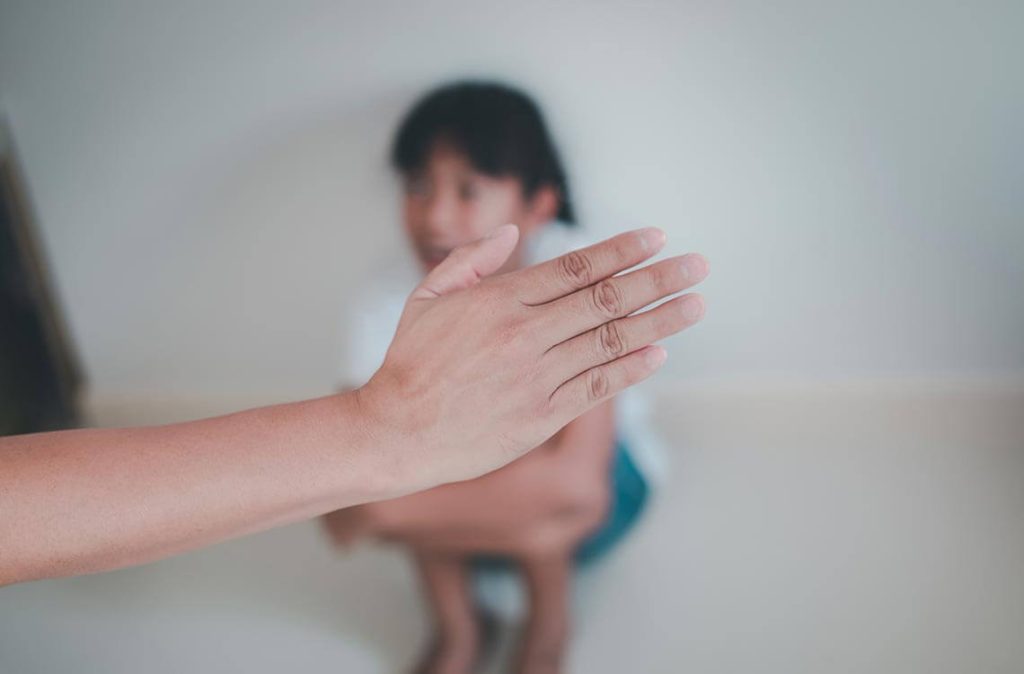In certain cultures, it may be seen as okay to hit your child (within reason, of course) as a form of discipline when they misbehave. Some might even consider it part and parcel of parenting if their kids fall out of line.
Spanking, for instance, has been a common, and at times even recommended, form of discipline in Asian countries like Malaysia for centuries. But that is not to say that all Asian parents hit their kids, of course.
However, there has since been science-backed evidence that proves just how harmful corporal punishment actually is. Both for the body and mind.
Here are some facts to ponder over on why parents or guardians should avoid hitting kids.
Corporal Punishment and Physical Abuse
Many Asian adults who grew up with traditional parenting may tell you that they turned out fine. Despite being ‘beaten’ by their parents as a kid. You yourself may have been at the receiving end of a hanger, or a ruler, at least once or twice.
But to say that it definitely did not cause you any long-lasting emotional trauma as an adult is just another form of personal gaslighting. You may have even repressed all those traumatic moments where you were hit as a child.
This may be a sensitive topic for many, but we are currently living in the 21st century. There should be better ways of disciplining your child that doesn’t potentially cause them long-lasting mental and emotional damage.
The Harmful Effects of Hitting Your Kids
It Promotes Physical Aggression
A study consolidating 50 years’ worth of research on child spanking has confirmed one thing that we’ve all suspected: physical abuse is harmful and a terrible way of disciplining your children. Anything from pinching, slapping, caning and flicking are all forms of corporal punishment.
When a child grows up with such behaviour around the house, they may think it’s a normal means of conflict resolution. They may then show aggressive tendencies towards their friends, peers, siblings and even relatives, especially during contentious moments.
They may even express their aggression through their toys, acting out violent and destructive scenes with their playthings. Some say this is a form of displacement where the child redirects his resentment of his parents towards a weaker more vulnerable victim.
And the worst part is if such trauma isn’t resolved, it may even lead to criminal behaviour later in their adulthood.
It Affects their Physical and Mental Wellbeing
Many parents who do so may justify that they never hit their kids hard. But children, no matter how naughty or unruly they are, are still children. And we may at times unknowingly underestimate the concussive force a full-grown adult can inflict on a toddler.
They may feel the effects for days and even walk away with the occasional bruise; or worse still, a bruised ego. This can severely jeopardise their self-esteem and sense of self-worth.
Even after the scars have faded, your spankings can still leave a permanent psychological mark. Studies have shown that corporal punishment slows cognitive development and even increases the likelihood of developing antisocial behaviour.
So, be wary about dolling out any painful punishments and consider opting for having a heart-to-heart with your child instead. Calmly explaining so they understand and are aware on where they went wrong can be a better solution.
It Perpetuates the Problem
Some adults who were hit as kids may be more likely to hit their own kids once they start families. In these cases, it’s usually likely because they have been conditioned from a young age to believe that spanking is an appropriate form of discipline. Unless they unlearn the patterns of trauma and abuse in the own lives and decide to break the cycle, of course.
But even parents with progressive views on childhood discipline may slip during a moment of weakness at times. So, it’s really important to always be aware of your own emotions, especially during emotionally-charged situations like temper tantrums or arguments.
We often talk about generational trauma and how we inherit and pass on the abuse suffered by our predecessors to our children. Well, corporal punishment is one such trauma. So, if you want a brighter, happier future for your descendants down the line, put down the cane.
Change Starts Now
Science has proven that you don’t need to beat your kids to raise them into cooperative, well-behaved individuals. It just takes some time, practice and confidence. And it is never too late for any parent to adopt a more positive and conscious parenting so they can raise a better, kinder generation. One that will hopefully end the endless cycle of familial violence, trauma and pain, once and for all. You’ve got this, mums!
Disclaimer: The information provided in this article is for informational purposes only and should not be considered as medical advice from Motherhood. For any health-related concerns, it is advisable to consult with a qualified healthcare professional or medical practitioner.
For more insightful stories and fun recipes, stay tuned to Motherhood Story!
